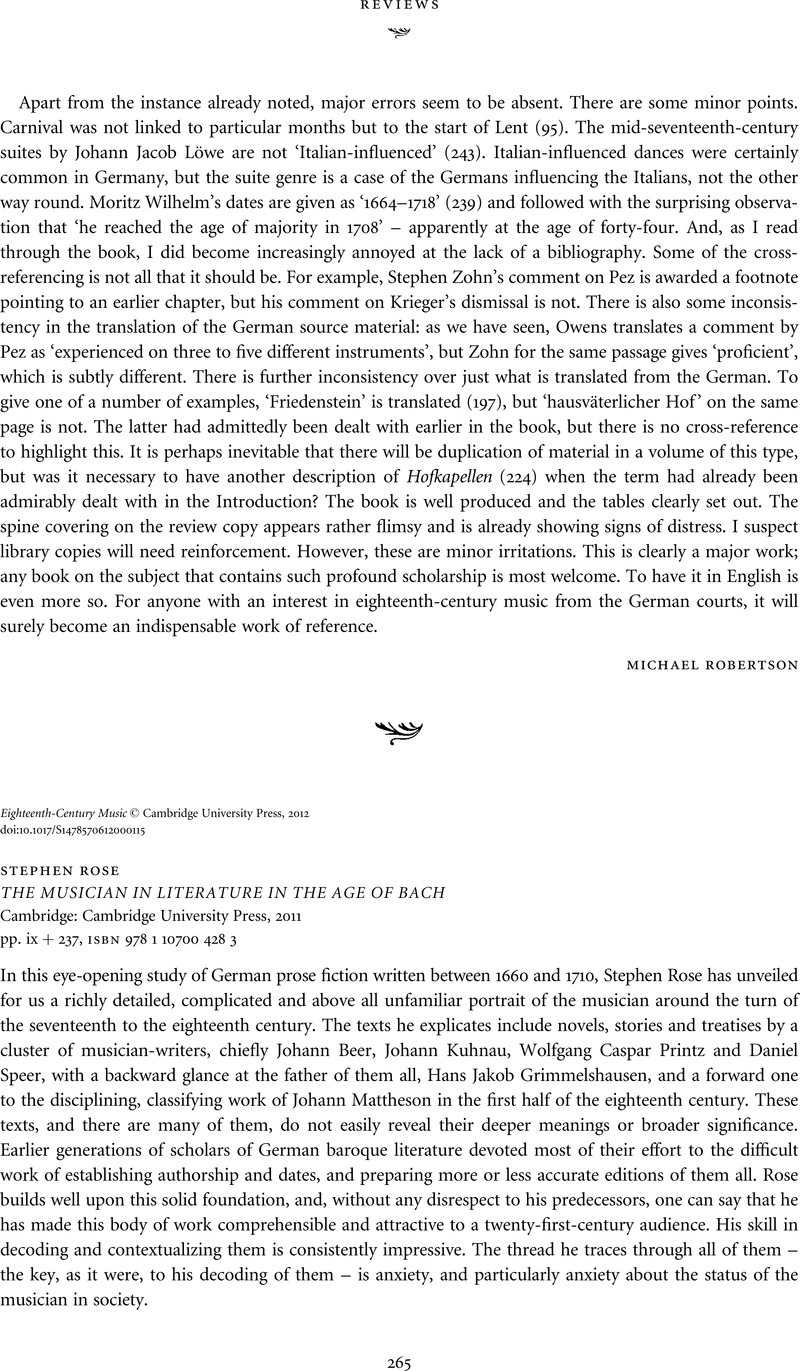No CrossRef data available.
Article contents
STEPHEN ROSE THE MUSICIAN IN LITERATURE IN THE AGE OF BACHCambridge: Cambridge University Press, 2011 pp. ix+237, isbn978 1 10700 428 3
Published online by Cambridge University Press: 30 July 2012
Abstract
An abstract is not available for this content so a preview has been provided. Please use the Get access link above for information on how to access this content.

- Type
- Reviews: Books
- Information
- Copyright
- Copyright © Cambridge University Press 2012


